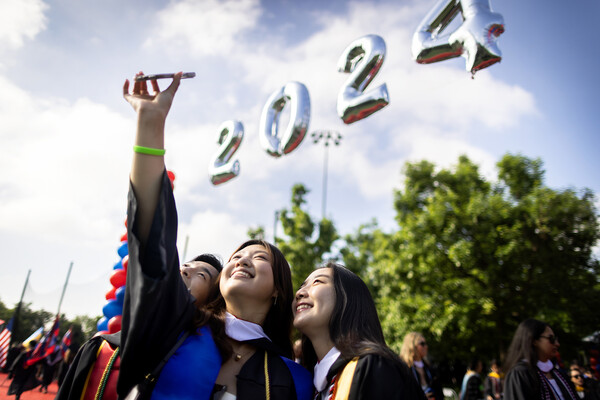Subjects matter at GSE
Did your ninth-grade biology teacher major in biology in college? Did your sixth-grade math teacher even have a minor in mathematics? Chances are, they did not. But increasingly, schools are looking for teachers who at least have a bachelor’s degree in the subjects they teach — particularly in the areas of math, science and foreign languages.
That is why the Graduate School of Education is expanding its level of cooperation with other departments, allowing students, for example, to earn two degrees, one in their subject area and one in education.
GSE’s most recently announced cooperative program is with the chemistry department and is designed for teachers already working in schools. It is a 10-course program for chemistry teachers or science teachers who want to deepen their knowledge of chemistry. It will begin in the summer of 2000.
“National attention on education has focused lately on insuring we have the best-qualified teachers,” said Nancy Streim, associate dean of GSE, explaining the school’s initiatives. “One issue is insuring teachers have deep knowledge of their subject area as well as skill to inspire learning in children.”
Another new program, which was instituted last year, is the dual master’s program, in which students would end up with a master’s degree in their subject area from the School of Arts and Sciences and an M.S.Ed. from GSE after a 14-month period of study. Streim believes this dual master’s program is the only one of its kind in the country.
The program also will help SAS to attract master’s degree students and provide them with expanded career opportunities. “We want there to be, for a number of reasons, a career path for people interested in their subject matter but who don’t want to go on for a Ph.D.,” said Joseph Farrell, associate dean for graduate studies in SAS and professor of classical studies.
“We want to make sure that teachers, especially in public schools but also in private schools, have good disciplinary strength” — more than what a master’s in education alone might give them.
The program is not yet available schoolwide, Farrell said, but some “ad hoc” arrangements might be made if a student in a nonparticipating department were interested in teaching.
GSE also has cooperative programs with undergraduate departments. With one extra year of study, students can earn both a bachelor’s degree and an M.S.Ed., with certification to teach. In this program, students might major in urban studies, elementary education or engineering. Students minoring in urban education or Jewish studies and education can also earn the dual degrees but not certification.
One controversial initiative GSE has been involved in is an alternative teacher certification process announced by the state of Pennsylvania last spring. High-performing college graduates as well as working professionals can take a two-week summer course, and then they would be required to complete 15 hours of course work within 18 months.
“We can have programs that don’t necessarily look like traditional degrees in education,” Streim said, “but it is a disservice to children to assume anyone with a bachelor’s degree in a subject can teach it. We are cooperating with the school district to get new teachers certified with a specific focus on teaching in an urban environment.”
Citing a need to understand the effects of family problems and socioeconomic conditions on learning in an urban environment, Streim said, “There’s a lot to know about teaching.”







